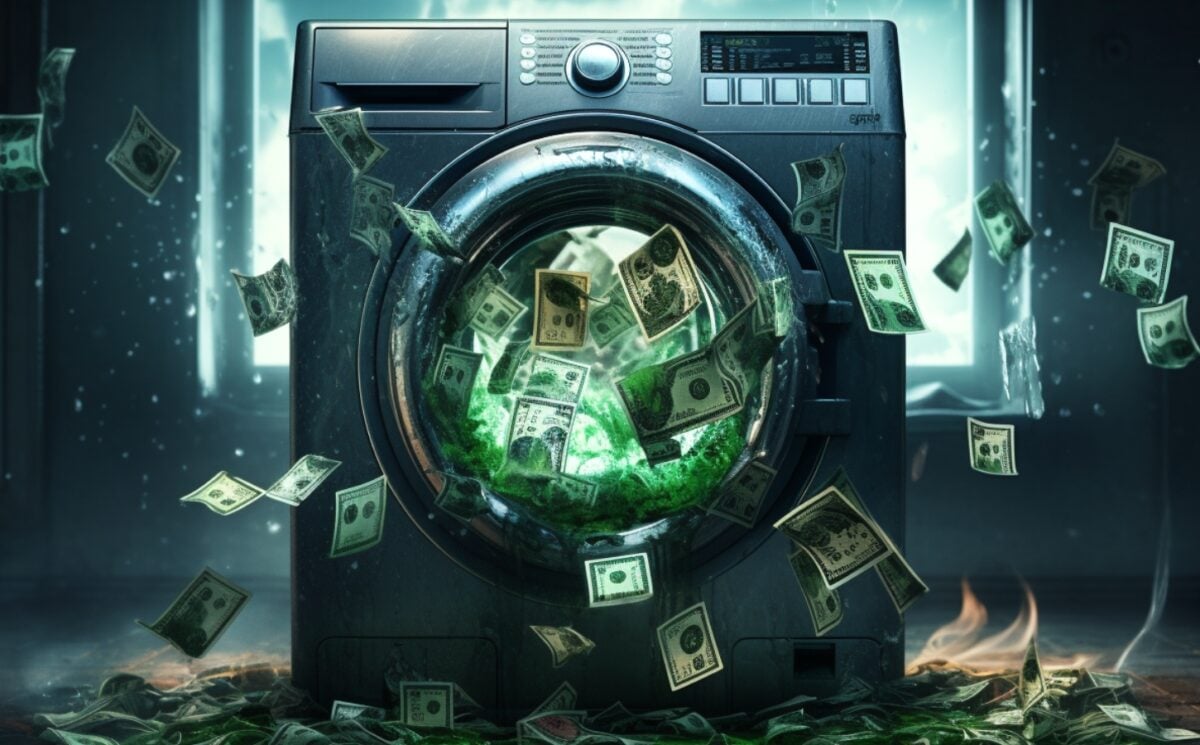George Orwell once noted that “political language is designed to make lies sound truthful and … give an appearance of solidity to pure wind.”
In the realm of corporate sustainability, this observation can be readily applied to the ignoble practice of greenwashing.
In the Cambridge Dictionary, the practice is simply defined as “making people believe that your company is doing more to protect the environment than it really is”. But the act of cloaking products and companies in eco-friendly language while skirting substantial action can take many forms.
Frequently, greenwashing is a cynical marketing ploy aimed at deceiving – pure and simple. In other cases, it can be a gap in understanding among marketers about the complexities of sustainability that leads to fanciful claims. In a recent study, three-quarters of marketers admitted to working on sustainability-related communications despite lacking in basic understanding.
But whatever the motivating factors, the way it manifests itself remains largely consistent: deceptive advertising that leads consumers astray through the strategic use of language, labels, and imagery, creating the illusion of eco-friendliness.
Greenwashing on the rise
Through the act of greenwashing, brands create the impression that they share their customers’ values and concerns. But in the process, not only do they mislead consumers, but they rob companies who truly are leading the way on sustainability of their well-deserved point of difference, disincentivising costly climate-first policies in the process.
In one fell swoop, they erode consumer trust and hinder real efforts to fight climate change.
Yet, cases are on the rise. In an age marked by heightened environmental awareness and an increasingly discerning consumer base, companies are falling over themselves to project an image of purpose and impact-driven ethos.
And with almost one in every three UK households now strongly considering environmental concerns when shopping, you can see why.
Deceptive advertising
Research conducted by the Independent has revealed a threefold increase year-on-year in the number of adverts deemed deceptive due to greenwashing, with the practice particularly rampant in the food and drink sector.
Amongst others, industry giants such as Coca Cola, Tesco and Alpro have all recently been caught making unsupported eco-claims.
Broadly speaking, the accusations tend to fall into one of three camps: a wilful misrepresentation of the company’s broader impact; the contravening of a specific internal policy; or a lack of data to substantiate an eco-claim.
As an example of the first, Coca-Cola has faced multiple greenwashing accusations, including a US lawsuit, alleging that its sustainability-focused marketing concealed its status as the world’s largest plastic polluter. The Changing Markets Foundation has also criticized the company for extensively promoting a sustainable bottle made from ‘ocean plastic’. The well-publicized initiative would have supposedly seen the inclusion of 25 percent ocean-sourced plastic in their bottles – in reality only 300 such bottles were reportedly produced.
In another case, Tesco has recently faced backlash for breaking one of its own sustainability pledges. As reported in the Times, Tesco has continued selling Brazilian meat, despite its promise to ban it due to deforestation concerns. This has led to accusations of greenwashing, largely due to the supermarket presenting itself as a leader in supply chain reform, which in turn generated positive media coverage and, potentially, granted it an unfair advantage over competitors.
The final – and the most common – example of greenwashing is a simple lack of supportive evidence to back up environmental claims. Alpro Almond milk, for instance, had an ad banned for claiming it was “good for the planet”. The company argued that it was referring to the greener credentials of plant-based products, but while this carries more merit and less misdirection than the previous examples, the ambiguity and absolutism of the claim remain unhelpful.
How can be buck the greenwashing trend?

So what can be done to buck this trend? Well, steps are already underway from the relevant authorities to curb vague, misleading, or unfounded statements.
In the UK, regulatory measures such as the Green Claims Code have been brought in and are being enforced with increasing vigor by the Advertising Standards Authority (ASA) and the Competition and Markets Authority (CMA). Over the past three years, the ASA has been involved in 761 cases of misleading environmental assertions within the FMCG sector.
The EU, meanwhile, has gone one step further. In September, it finalised a new law designed to help consumers spot greenwashing, which will effectively ban any generic green claims, unless companies provide “proof of recognised excellent environmental performance relevant to the claim”.
This will include the banning of widely used terms such as ‘Carbon-neutral’, ‘Eco-friendly’ or ‘Biodegradable’, following the discovery that 53 percent of EU consumers are oblivious to misleading claims on product packaging.
We need to be proactive
While these efforts are no-doubt well-intentioned, and have the potential to curb consumer misdirection, there is a risk that they inadvertently breed a culture of inertia. One in which brands, apprehensive of potential regulatory repercussions, find themselves reluctant to communicate – and by association take – sustainable action.
Moreover, while it’s great that regulation is being put in place to avoid consumers being misled, it must be accompanied by a proactive move to deliver greater transparency to consumers on the eco-impact of the products they buy. For this, alternative frameworks are needed to bring about radical climate transparency in consumer goods.
Consumers have a crucial role to play in the green transition and, as such, deserve to be armed not only with the means to discern reality from artifice, but also with the information and tools to actively inform their choices.
The importance of eco-labels
This is where eco-labels come into play. Just as nutritional labels have led to more informed food choices, eco-labels can shed light on the environmental footprints of products, culminating in a more clued-up consumer base.
The data needed to measure the climate impact of food or drink products is already readily available, and there are plenty of consultancies who provide product footprint evaluations. It’s for brands and retailers to take the leap and embrace climate transparency. And some – including Tenzing, Oatly, Mindful Chef, Dash and Coco di Mama – are already doing so. Others, meanwhile, are moving at a much slower pace.
But with 60 percent of global greenhouse gas emissions coming from consumer use, time is of the essence. Regulatory interventions are needed, and thankfully forthcoming. In countries such as France, carbon labels are already being mandated. Elsewhere, including in the UK, they’re on the horizon.
But with universal labels still a work in progress, and only a portion of the market taking a proactive approach, consumers have been unable to see the full picture and make meaningful comparisons.
Reewild
At Reewild, we’re working to change that, by making information on the climate impact of different products available to all. Through our app, shoppers can discover the footprint of millions of ingredients, recipes and products, through an in-app search function or by scanning barcodes.
Each item in the database carries a traffic light rating from A to E denoting its impact on the environment, and a unique Carbon Calorie (CC) value. One CC – a new unit intended to simplify the understanding of a product’s impact – equates to 1g of CO2e (carbon dioxide equivalent) emitted throughout the lifecycle of the product, from farm to fork.
By giving consumers access to this data, we help to equip anyone and everyone with the information and tools to make more sustainable choices.
Looking to the future
Furthermore, the more Eco-labelling and climate data becomes ubiquitous, and the more informed consumers become, the harder it will be for companies to engage in greenwashing.
Ever seen a product claim that it’s “slimming” when it accounts for 80 percent of your daily calorie intake? Me neither.
Carbon Calories can be a beacon of informed consumer power, ensuring that choices are rooted in data, not catchy slogans. The more brands commit to calculating the footprint of their products – before they’re mandated to do so by the government – the more accurate this carbon data becomes.
And for companies, being an early adopter can help them stand out amongst the crowd and build trust and loyalty with eco-conscious consumers. For, as Orwell once again neatly put it, “in a time of deceit telling the truth is a revolutionary act.”






